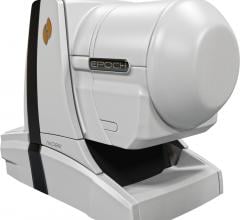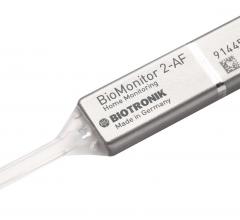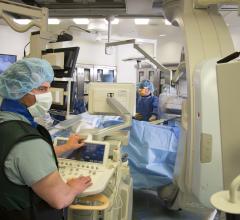Using data from a national study, Johns Hopkins researchers determined that using heart computed tomography (CT) scans can help personalize treatment in patients whose blood pressure falls in the gray zone of just above normal or mild high blood pressure. Previously, the appropriate blood pressure treatment for these patients used risk calculations and some guesswork, potentially leaving many vulnerable to heart disease or taking drugs they do not need. Nearly one in three adults in the United States has prehypertension, blood pressure higher than normal but not considered high yet.
January 23, 2017 — Over 93 percent of heart attack patients are receiving stents within the guideline-recommended ...
Carestream Health will demonstrate a zero-footprint enterprise imaging platform that can easily enable new use cases and modules at the upcoming Healthcare Information and Management Systems Society (HIMSS) conference, Feb. 19-23 in Orlando, Fla.
Providing exceptional cardiovascular care for patients to achieve the best possible outcomes is the number one goal for ...
Stereotaxis Inc. announced the release of an interface between its remote magnetic navigation system for electrophysiology (EP) procedures and the Philips Allura Xper FD10 cardiovascular X-ray system. The interface allows interoperability of the Stereotaxis Niobe system with the Philips Allura Xper FD10 version R8.2 system and is available worldwide.
Biotronik has enrolled the first patients in the BioInsight clinical study evaluating the safety and feasibility of performing the minimally invasive BioMonitor 2 insertion procedure in an office setting.
January 20, 2017 — A new document from the European Association of Cardiovascular Imaging (EACVI) and the American ...
Cardiac positron emission tomography (PET) is growing in popularity among cardiologists because it provides the ability ...
January 19, 2017 — Apollo Enterprise Imaging Corp. announced it has entered into an agreement with DiACardio Ltd to ...
Intelerad Medical Systems announced a partnership with Laurel Bridge Software that will allow Intelerad to offer a number of solutions that address complex data, networking and architectural challenges common in multi-facility, cross-enterprise organizations.
Zetta Medical Technologies announced the release of Zia, an iterative reconstruction solution that enables the use of low-dose computed tomography (CT) protocols for CT scanners.
When performing radiofrequency (RF) ablation to treat cardiac arrhythmia, medical professionals must balance the safety ...
Materialise NV has launched AnatomyPrint, an easy-to-use service for medical professionals that delivers 3-D printed anatomical models directly to their doorsteps. The new service was launched during the 2016 Radiological Society of North America (RSNA) Scientific Assembly and Annual Meeting, Nov. 27-Dec. 2 in Chicago.
A new study published in Circulation has found there is a 23 percent risk in reduction of all-cause mortality in non-ischemic cardiomyopathy patients with use of implantable cardioverter-defibrillator (ICD) therapy.
LindaCare announced that it will open a new customer support facility in Connecticut to support growing interest in their vendor-neutral software platform for monitoring patients with chronic heart disease and other conditions.
Change Healthcare Cardiology Hemodynamics is an integrated hemodynamic monitoring system for monitoring vital signs and ...
The American College of Cardiology recently released new guidance for clinicians and hospitals to use in assessing patients’ eligibility for transcatheter aortic valve replacement (TAVR), successfully performing the procedure and providing appropriate follow-up. The 2016 ACC Expert Consensus Decision Pathway for Transcatheter Aortic Valve Replacement in the Management of Adults with Aortic Stenosis builds on recommendations set forth in the American Heart Association (AHA)/ACC Guidelines for Management of Patients with Valvular Heart Disease.
In an article published in the January 2017 issue of The Journal of Nuclear Medicine, researchers assert that exposure to medical radiation does not increase a person’s risk of getting cancer. The long-held belief that even low doses of radiation, such as those received in diagnostic imaging, increase cancer risk is based on an inaccurate, 70-year-old hypothesis, according to the authors.
A study led by Massachusetts General Hospital (MGH) and Icahn School of Medicine at Mount Sinai (ISSMS) investigators has linked, for the first time in humans, activity in a stress-sensitive structure within the brain to the risk of subsequent cardiovascular disease. The team's findings, being published in the journal The Lancet, also reveal a pathway leading from activation of that structure — the amygdala — through elevated immune system activity to an increased incidence of cardiovascular events.

 January 23, 2017
January 23, 2017















